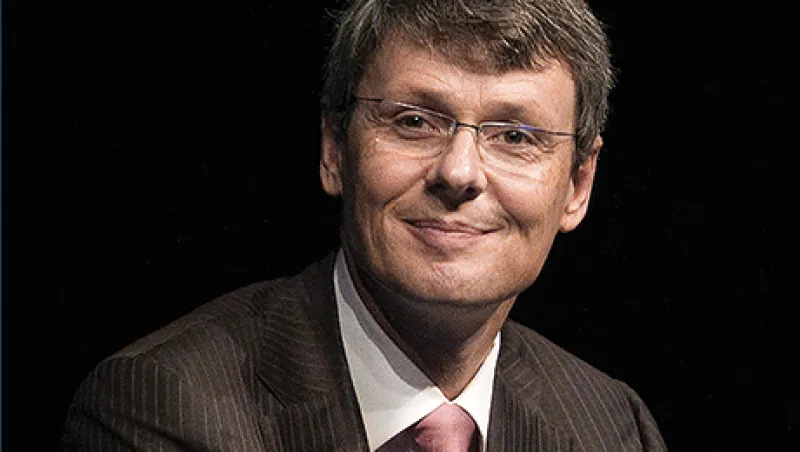Who’s BlackBerry going to call? The ailing Canadian smartphone pioneer may turn to its home country’s largest pension funds as key investors if it gets taken private. No one wants to see Canada Inc. lose another Nortel Networks, the Ontario-based tech giant that folded in 2009. “It tugs at your heartstrings,” says Leo de Bever, CEO of Edmonton-based Alberta Investment Management Corp., which invests $70 billion in public pension assets. “What is the proposition for a reborn BlackBerry?” de Bever asks. “It’s an intriguing question.”
Given the decline of the Waterloo, Ontario–based company — nearly 60 percent of whose shares are owned by institutions — riding to the rescue may be folly. With the consumerization of the enterprise market, corporate and government employees have traded their BlackBerrys for Apple and Samsung devices, explains Bill Menezes, a principal research analyst at technology consulting firm Gartner in Stamford, Connecticut. BlackBerry’s share of the global smartphone market peaked at 20 percent in 2009, according to Menezes. In the second quarter of this year, it claimed a paltry 1.4 percent, versus 24.7 percent for Samsung, 14 percent for Nokia and 7.3 percent for Apple. On August 30, BlackBerry stock closed at $10.12 on the Nasdaq, a shadow of its $144 record in mid-2008.
Brian Modoff, an analyst at Deutsche Bank Securities in San Francisco, has a sell rating on BlackBerry. It’s hard to see who would step in to save it, says Modoff, who notes that the typical product life cycle for handsets is six to nine months, a pace that BlackBerry hasn’t kept: “You miss a few product cycles, and you lose money and market share.”
In mid-August, BlackBerry formed a five-member board committee, including president and CEO Thorsten Heins, to consider options such as joint ventures, strategic partnerships or even a sale. Prem Watsa, the company’s largest shareholder, with a 10 percent stake, quit the board, prompting speculation that he’s hunting for a buyout. Chairman and CEO of Toronto reinsurer Fairfax Financial, Watsa has said he has no plans to sell his shares.
Whatever shape BlackBerry takes, pension investors can expect a call. “It’s not inconceivable, given the company’s role in the Canadian corporate sphere, that these pension funds would want to take a proprietary stake and keep it as an ongoing Canadian concern,” says Menezes. AIMCo’s de Bever agrees: “In any potential transaction of this kind, all of the major [pension] players will be contacted,” he says. “Our preference is always to let economics play out,” de Bever adds, noting that AIMCo’s BlackBerry holding is in an index fund.
Read more about pensions and trading and technology.





